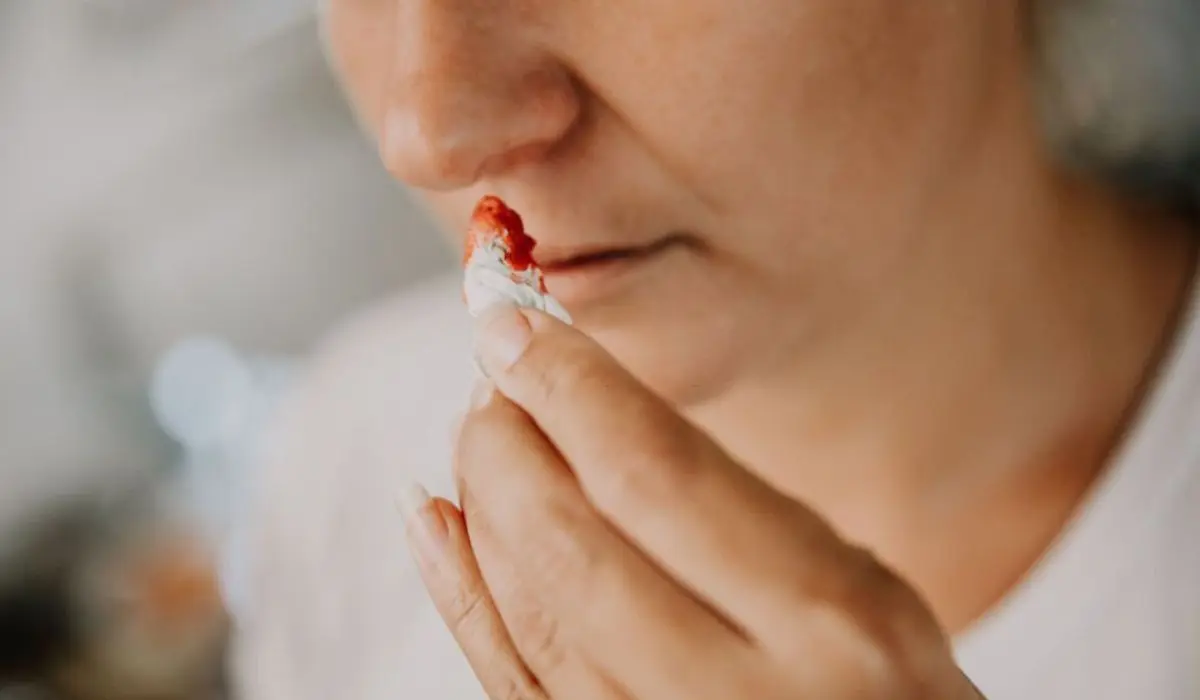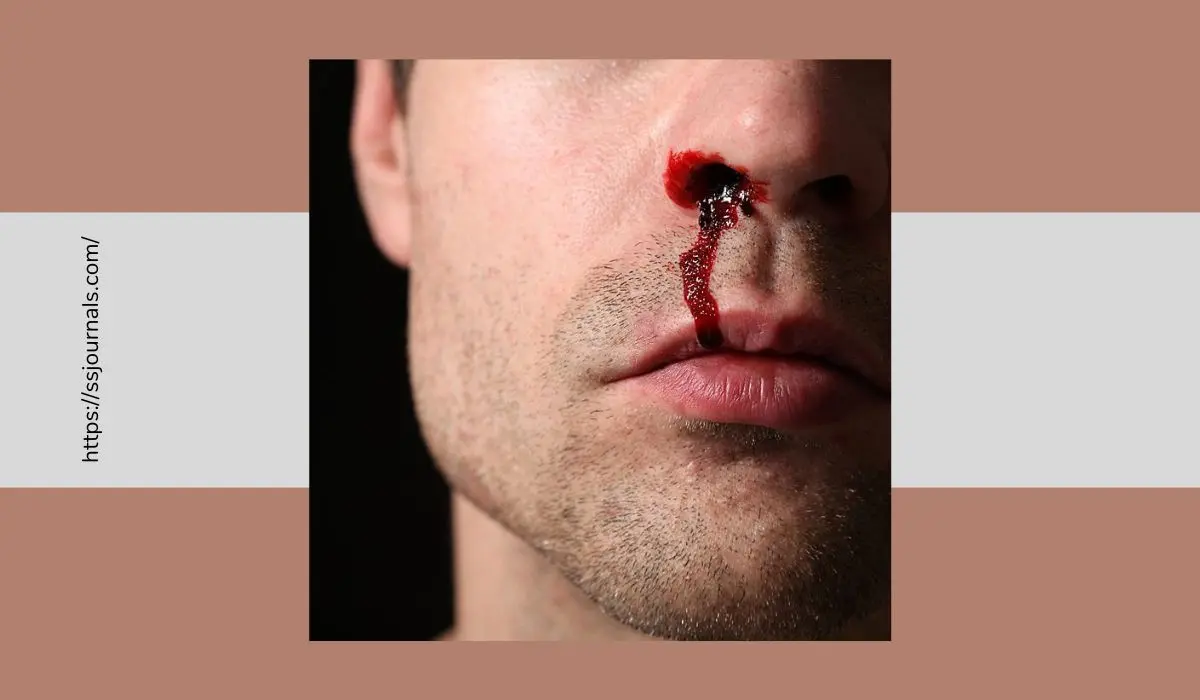Nosebleeds, also known as epistaxis, are very common. Almost 60% of people will experience a nosebleed in their lifetime. While they can be alarming, most nosebleeds are not serious and can be easily managed with some simple first-aid techniques and home treatments.
Understanding the causes, symptoms, and precautionary measures for nosebleeds allows you to handle them properly and prevent recurrence.
What Do You Mean By Nosebleeds?
A nosebleed refers to bleeding from one or both nostrils. The medical term for nosebleeds is epistaxis. Nosebleeds occur when one of the blood vessels in the nasal lining ruptures and bleeds.

The blood usually comes from one nostril but can sometimes come from both. Bleeding can range from a small leak to a heavier flow.
Symptoms Of Nosebleeds
The main symptom is blood flowing out from one or both nostrils. Other symptoms that may accompany a nosebleed include:
– Steady flow of bright red blood from the nose
– Blood draining down the back of the nose into the throat
– Nausea or vomiting after swallowing blood
– Lightheadedness from blood loss
– Nasal stuffiness after the bleeding stops
– Crusting around the nostrils once bleeding ceases
Causes Of Nosebleeds
There are several factors that can contribute to the rupturing of a nasal blood vessel and cause a nosebleed:
– Dry nasal passages from dry indoor air, allergies, medications, or cocaine use
– Picking the nose aggressively
– Blowing the nose forcefully
– Trauma such as a hit or blow to the nose
– Vigorous nose rubbing
– Nasal infections like sinusitis or rhinitis
– Foreign objects stuck in the nose
– Nasal polyps or tumors
– Blood thinning medications
– Blood disorders like hemophilia
– High blood pressure
– Vitamin K deficiency
Health Tips For Nose Bleeding
If you experience frequent or severe nosebleeds, try these self-care tips to manage symptoms:
Nose Bleeding Precautions – When To See A Doctor?
Conclusion
Nosebleeds are unpleasant but rarely indicative of major illness. Still, frequent or heavy nosebleeds should be evaluated by a doctor. Using first aid techniques like pinching the nose, applying cold compresses, moisturizing the nasal passages, and avoiding irritants can usually stop a nosebleed quickly.
Take precautions year-round if you experience recurring nosebleeds. Proper handling of nosebleeds reduces complications and helps prevent future episodes.
FAQs
Keep the head tilted slightly forward. Leaning backward can cause blood to flow down the throat.
Pinch the soft lower part of the nose continuously for at least 10 full minutes without letting go. This applies needed pressure.
Seek medical advice if you get frequent nosebleeds, more than once a week, or if bleeding is heavy or lasts longer than 20 minutes.
Very rarely. Only if bleeding is excessive and unable to be stopped, causing severe blood loss and dangerously low blood pressure.
Yes, excessively picking the nasal lining can damage blood vessels and cause frequent nosebleeds. Try to break the habit.

